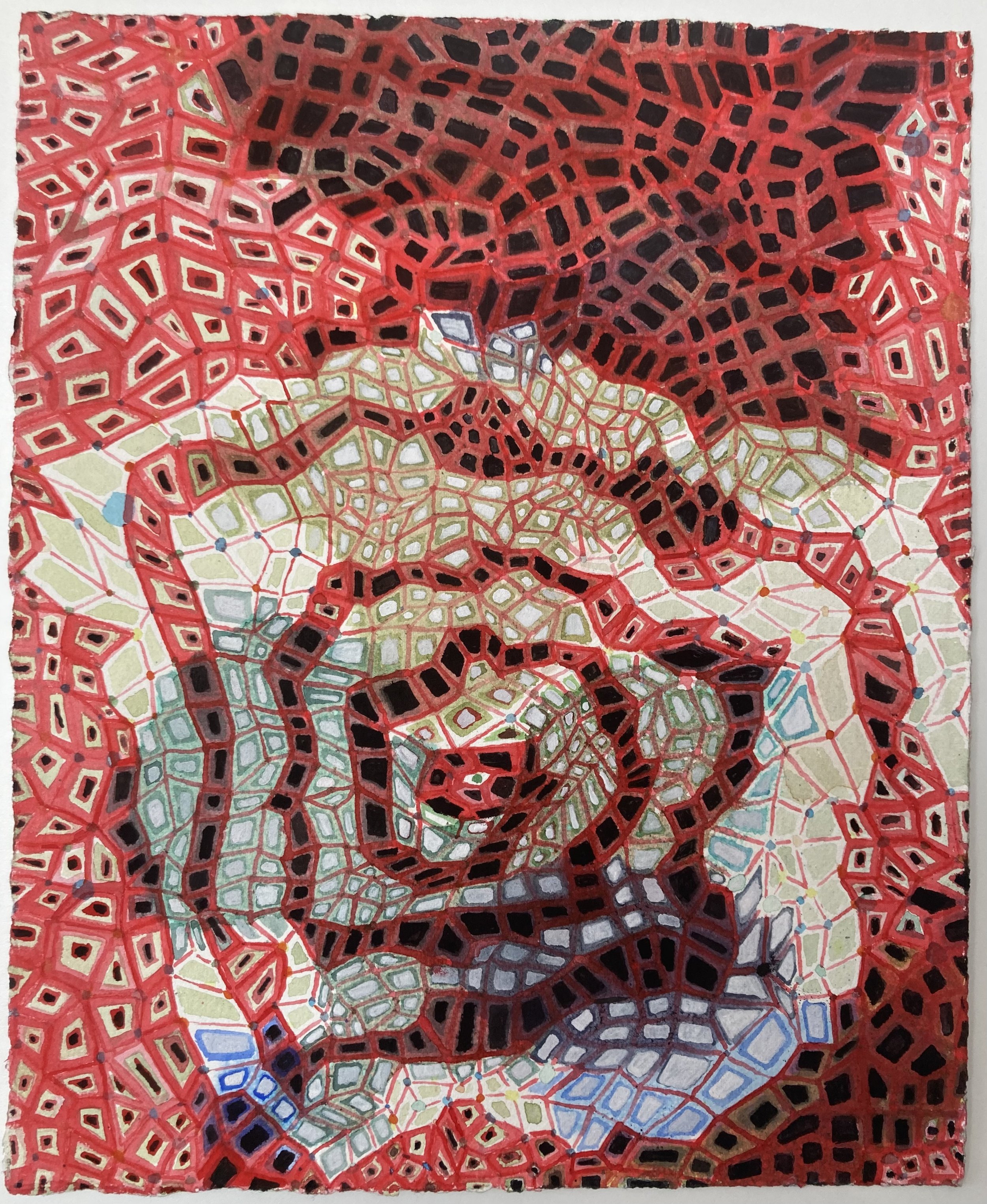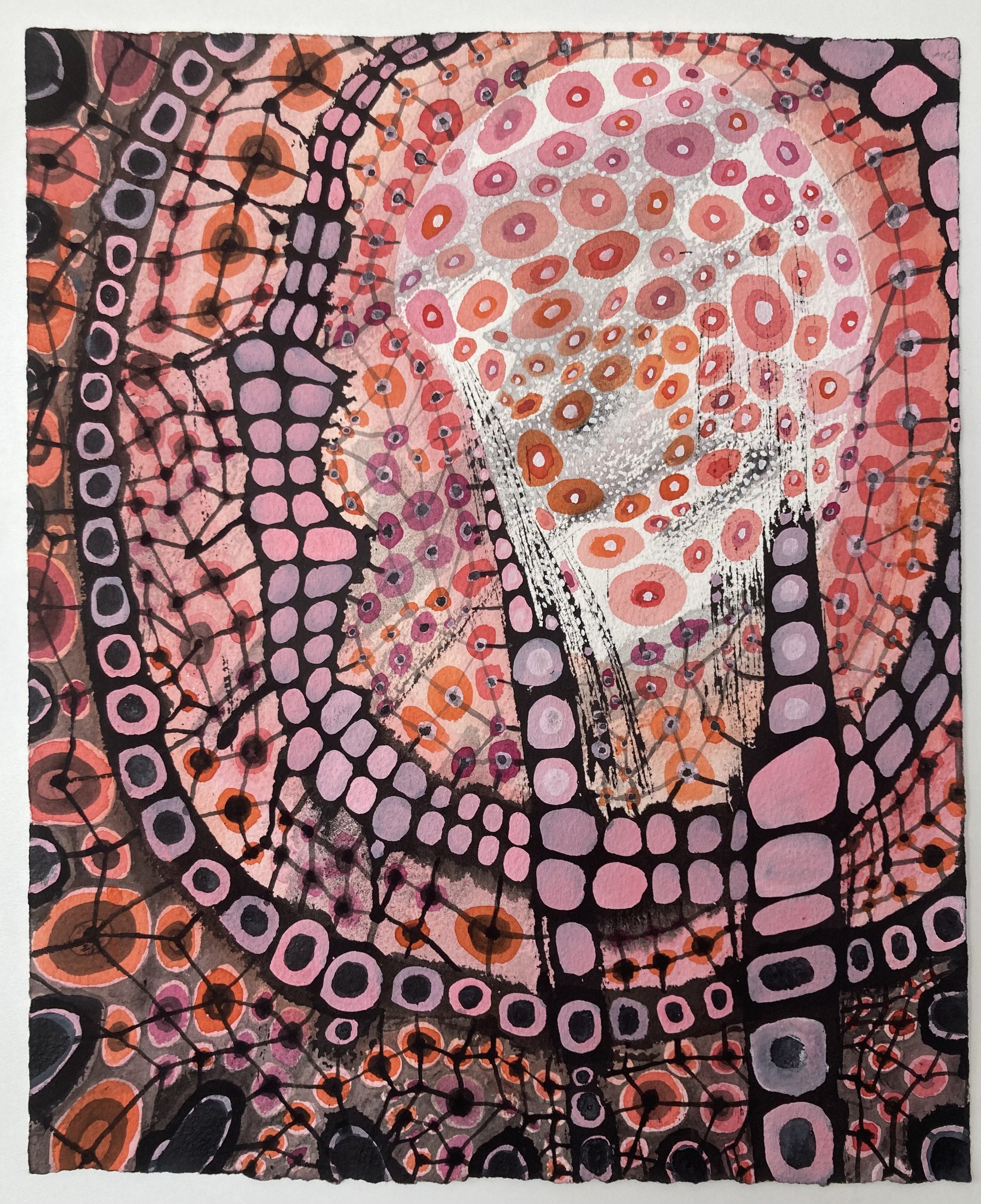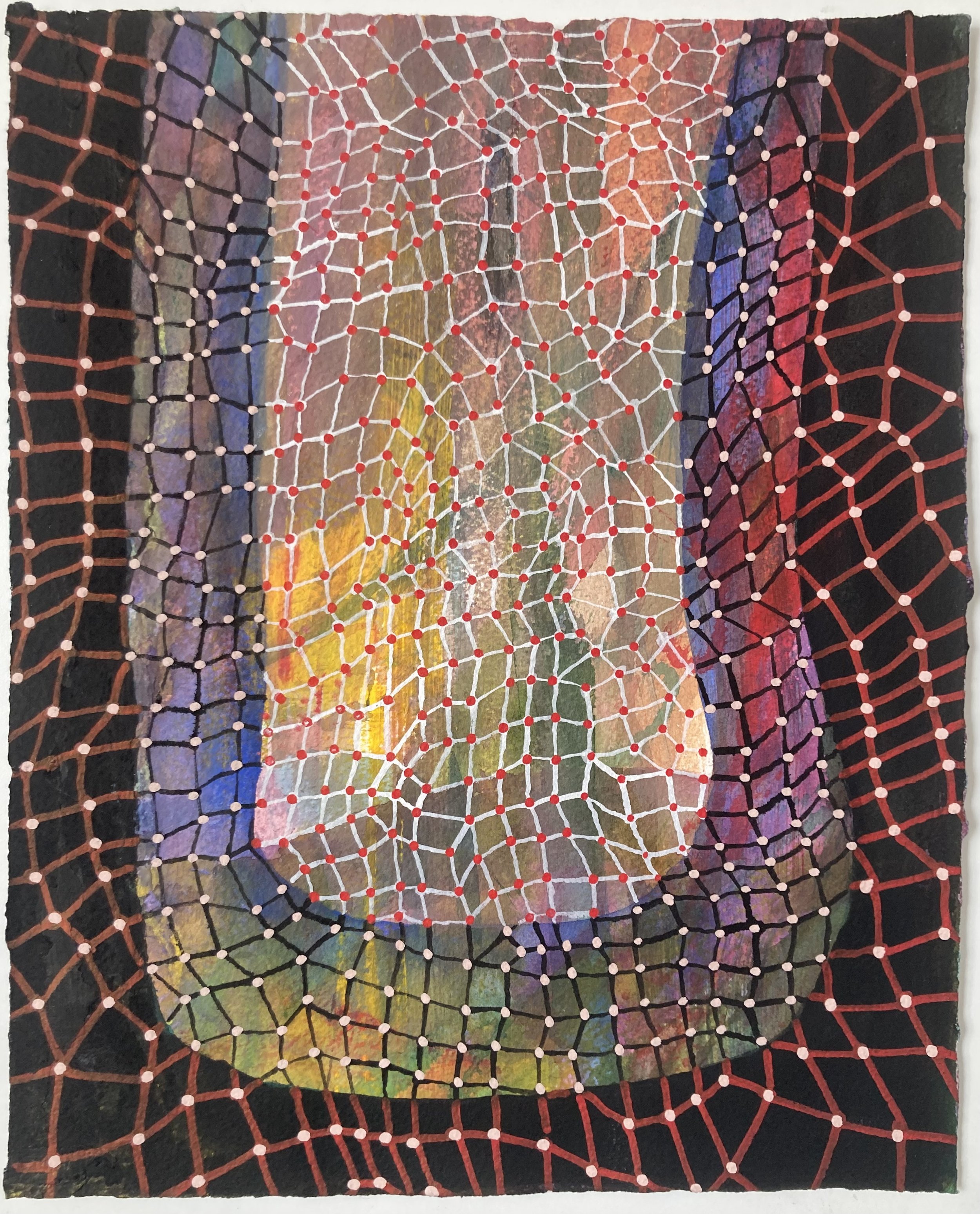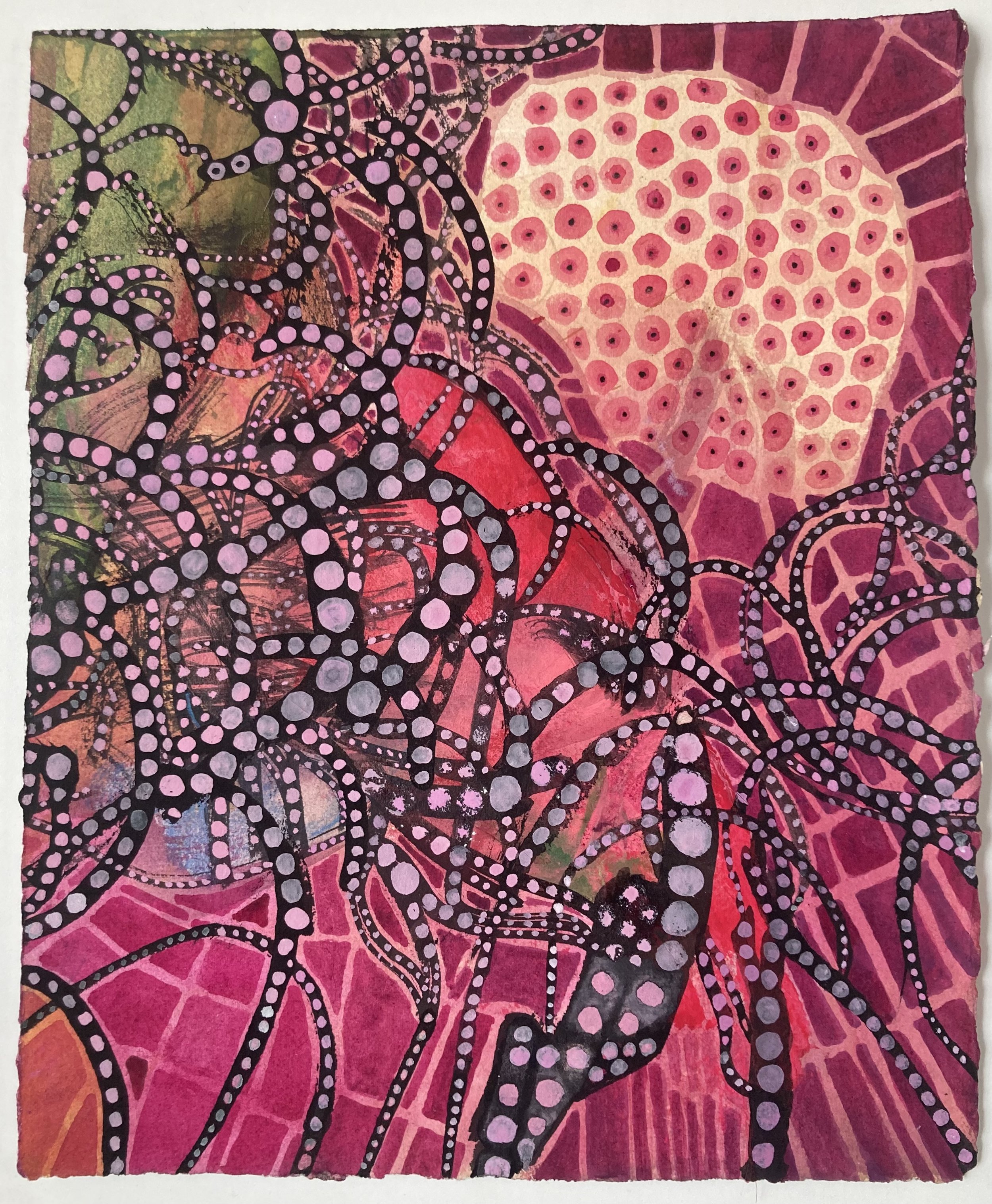Omphalus Series 2022
Works on Paper
“Omphalos originated as an ancient Greek word meaning "navel" and is distantly related to two other words of the same meaning, Latin umbilicus and Old English "nafela." (The latter of these is the source of our word navel.) The ancient Greeks also used "omphalos" to refer to a sacred, rounded stone in the Temple of Apollo at Delphi that was supposed to mark the center of the earth. In the 19th century, English speakers borrowed "omphalos" for this sense and its more general "center of activity" sense, as well as to refer to raised ornamentation on a shield or in the base of a cup or dish. In the 1920s, "omphalos" made another contribution to English via the word omphaloskepsis, which means "contemplation of one's navel."― Merriam Webster Dictionary
Dacher Keltner, the author of Awe The New Science of Everyday Wonder and How It Can Transform Your Life, tells us we are “awe deprived.” We often fail to notice the wondrous world around us. Awe of majestic trees, vast vistas, and expansive seas as well as the microbial world, brings one to a small sense of self. That consciousness of the self as part of the gigantic web of space and life is a reset to the mind that brings us to see, feel, and act on the connections beyond the self. Awe both elevates and grounds us. The Omphalus works imagine the tiniest fruits of the earth, as well as the celestial infinity of the stars or the heavens. And in them, with the power and vision of awe and amazement, I contemplate our place in the universe in this great web of creation.
Omphalus, 2022, watercolor/gouache/ink on arches paper, 12" X 9 3/4"
Omphalus 2, 2023, watercolor/gouache/ink on arches paper, 12" X 9 3/4"
Omphalus 3, 2022, watercolor/gouache/ink on arches paper, 12" X 9 3/4"
Omphalus 4, 2022, watercolor/gouache/ink on arches paper, 12" X 9 3/4"
Omphalus 5, 2022, watercolor/gouache/ink on arches paper, 12" X 9 3/4"
Omphalus 6, 2022, watercolor/gouache/ink on arches paper, 12" X 9 3/4"
Omphalus 7, 2022, watercolor/gouache/ink on arches paper, 12" X 9 3/4"
Omphalus 8, 2022, watercolor/gouache/ink on arches paper, 12" X 9 3/4"
Omphalus 9, 2022, mixed media on arches paper, 12" X 9 3/4"
Omphalus 10, 2022, watercolor/gouache/ink on arches paper, 12" X 9 3/4"
Omphalus 11, 2022, watercolor/gouache/ink on arches paper, 12" X 9 3/4"
Omphalus 12, 2022, watercolor/gouache/ink on arches paper, 12" X 9 3/4"
Omphalus 13, 2022, watercolor/gouache/ink on arches paper, 12" X 9 3/4".
Omphalus 14, 2022, watercolor/gouache/ink on arches paper, 12" X 9 3/4"
Omphalus 15, 2022, watercolor/gouache/ink on arches paper, 12" X 9 3/4"
Omphalus 16, 2022, mixed media on arches paper, 12" X 9 3/4"
Omphalus 17, 2022, mixed medi on arches paper, 12" X 9 3/4"
Omphalus 18, 2022, watercolor/gouache/ink on arches paper, 12" X 9 3/4"
Omphalus 19, 2022, mixed media on arches paper, 12" X 9 3/4"
Omphalus 20, 2022, watercolor/gouache/ink on arches paper, 12" X 9 3/4"
Omphalus 21, 2022, watercolor/gouache/ink on paper, 12" X 9 3/4"
Omphalus 22, 2022, watercolor/gouache/ink on arches paper, 12" X 9 3/4"
Omphalus 23, 2022, watercolor/gouache/ink on arches paper, 12" X 9 3/4"
Omphalus 24, 2022, watercolor/gouache/ink on arches paper, 12" X 9 3/4"
Omphalus 25, 2022, watercolor/gouache/ink on arches paper, 12" X 9 3/4"
Omphalus 26, 2022, watercolor/gouache/ink on arches paper, 12" X 9 3/4"
Omphalus 27, 2022, watercolor/gouache/ink on arches paper, 12" X 9 3/4"
Omphalus 28, 2022, watercolor/gouache/ink on arches paper, 12" X 9 3/4"



























